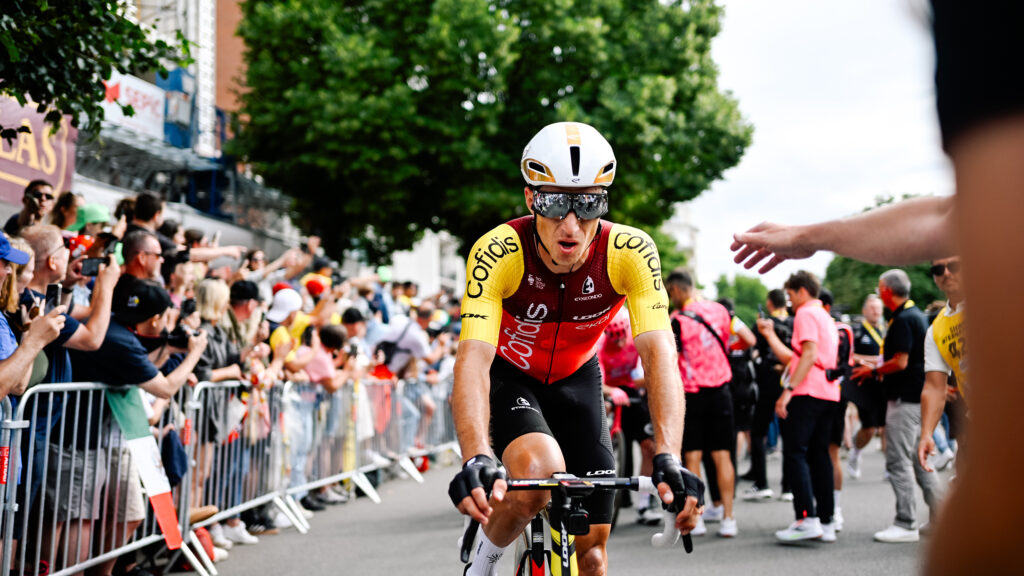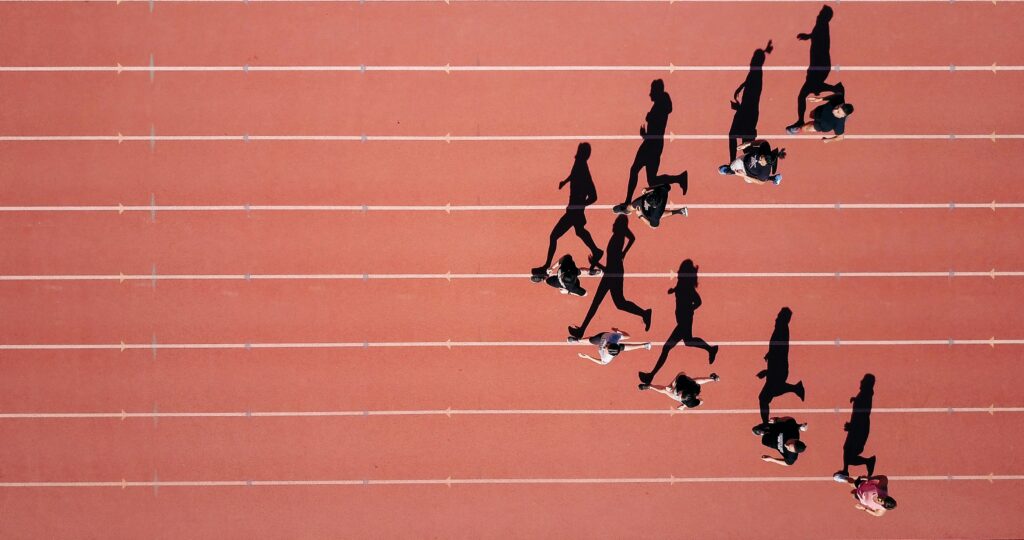Recovery can be defined as a restorative process of the mind and body over time. It involves the rehabilitation of an individual’s psychology, physiology and biopsychosocial balance. When this balance is being disturbed by certain external or internal sources of stress, the condition of fatigue sets in and a blanket of tiredness shrouds the mind and body. Efforts to change this physiological and psychological state by stimulating them and once again establishing the allostatic balance is one way to get rid of the fatigue state through recovery methods and techniques.

Highlights
- Recovery can be defined as a restorative process of the mind and body over time. It involves the rehabilitation of an individual’s psychology, physiology and biopsychosocial balance. When this balance is being disturbed by certain external or internal sources of stress, the condition of fatigue sets in and a blanket of tiredness shrouds the mind and body,
- Full mental and psychological recovery from burnout is not an uncommon phenomenon to live through or witness in athletes, businesspersons and other high-performance artists. Recovery from such a situation is a chronic source of stress from any line of profession,
- Elite and high-level athletes comprehend the importance of rest and mental recovery to achieve optimal performance on the field because it is, without doubt, an important aspect of the job. It presents a crucial component of an exercise regimen because it gives time for the body, physiology, and mind to heal, prepare, adapt, strengthen and endure.
As humans, our mental capacity is vast, beautiful and intelligent beyond barriers, but it is not limitless. We try to constantly predict the future, anticipate the next course of action and we over-think more our physiology is able to handle. These actions and behaviours are what fatigues us, depletes us of our energy, and ultimately limits our performance (burnout).
Certain indicators or symptoms of mental exhaustion and physical burnout can be identified by difficulty in being able to sleep properly, being on-edge and short-tempered frequently, being closed off from other people and being less effective at work or on the field.
Many research studies conducted show that exercising and training to an extreme level of intensity is highly associated with an increase in the stress hormone secretion (cortisol), and subsequent burnout could result in more potential adverse impacts on the body and mind. This can happen in a multitude of scenarios, but where it matters most is in between training sessions or between two or more events, and it can also happen right in the middle of a training session or an important competition.
Neither is a desirable situation to be in since this increase in stress levels can also increase the risk of injury due to changes in attention, overarching distractions and self-consciousness by affecting the athlete’s overall wellness making them more prone to injury. That is why it is important to practice and exercise proper recovery techniques that will equip our minds and body to be able to handle these stressors effectively and efficiently.
Science
Full mental and psychological recovery from burnout is not an uncommon phenomenon to live through or witness in athletes, businesspersons, and other high-performance artists. Recovery from such a situation is a chronic source of stress from any line of profession. The harder we try to fight against this fatigue and burnout, the harder it is to emerge fully recovered and healthy.
A psychological drive of not being able to let go arises due to the stress endured, be it a physical injury or mental exhaustion, which results in poor performance and poor mental health if left unattended.
The HPA axis (hypothalamus, Pituitary and adrenal glands) is responsible for the regulation of the stress system in the body, which involves the use of these glands and the sympathetic nervous system. When an external stressor makes itself noticeable, the hormone of corticotropin is secreted by the hypothalamus in the brain, which in turn signals the pituitary and the adrenal glands to release epinephrine to the rest of the body. This results in the formation of adrenocorticotropin, the neurotransmitter responsible for alerting the sympathetic nervous system, and the brain is forewarned to react appropriately to this stressor in the form of a fight or flight reaction.
A study conducted in 1999 examined the relationship shared between the HPA axis and the neuroscience of extreme psychological exhaustion. It reported that the individual cortisol levels were compared between two groups of people, both under the influence of a significant amount of stress but only one experiencing burnout. Even though the corticotropin levels were higher in those experiencing burnout, the statistical difference came to be seen only in those experiencing a chronically extreme level of burnout.
As a result of this, multiple biological systems are affected negatively, and it leads to changes marked by unusual levels of various neuromodulators and hormones due to alterations in the autonomic nervous system, the endocrine system and the immune system too. If immediate recovery or clinical attention is not provided within a specific time frame, the physiology can adapt to accelerated ageing, risk of heart and cardiovascular diseases, diabetes and a massive downfall of performance levels.
Elite and high-level athletes comprehend the importance of rest and mental recovery to achieve optimal performance on the field because it is, without doubt, an important aspect of the job. It presents a crucial component of an exercise regimen because it gives time for the body, physiology, and mind to heal, prepare, adapt, strengthen and endure. This applies to both training situations or competitions or even in the midst of competition too.
This process happens because the stress that is associated with the workout programme and the level of the competition uses up and depletes energy faster than it can be produced or converted within the body, and it results in burnout when the body starts to consume energy it doesn’t have. The recovery period rectifies this step by replenishing the muscles with more glycogens that are essentially energy stores, where it is converted and kept for use when required from the food, minerals and nutrition-based diet. It also does an important job of giving the body tissues some time to repair itself so it can adapt better and ultimately perform at peak level consistently.

Actionables
There are many ways to boost mental recovery and enhance performance in the process of bouncing back from burnout. It can be argued that rest and time are the two of the most effective ways to heal. The athlete’s mind goes back and forth between a state of burnout and a state of high performance, while the body is ready for only one of them.
Equipping themselves with various coping tools like breathing techniques along with practising better sleeping patterns, regulated diet and hydration would prove to be beneficial to anyone who makes an attempt, although different people cope in different ways. It is important for everyone to find tools that help them to ensure it works and improves performance.
Burnout and mental exhaustion, either from injury or other factors, can also arise from lack of sleep. Hence, encouraging a better quality of sleep in the routine would show immensely positive effects such as faster tissue repair and a more stable state of mind between and during competitions or training sessions. A study conducted on people experiencing heavy burnout showed that improved sleep significantly affects sleep fragmentation, latency, time of rising and efficiency. Quicker recovery from fatigue and arousal from sleep patterns were recorded to revamp performance level indicators.
Effectuating routines such as taking a warm bath before heading to bed, avoiding screens and blue light at least an hour ahead of bedtime and managing specific sleeping positions will set the seal on gaining a much healthier and deeper sleep, which in turn tremendously boosts recovery and drastically reduces the chances of suffering from insomnia.
Some other commonly used methods to actively boost performance levels while recovering mentally and psychologically include focussing on the process more than the outcome, structuring an adequate schedule, maintaining a training log that would help towards keeping track of recovery rate and improvements, regular hydration, cold therapy and eating well.
Conclusion
Mental recovery and performance enhancement from burnout or mental exhaustion is not an easy process. Recovery by itself is a demanding procedure to see through, especially after feeling extreme fatigue and mental tiredness. Nevertheless, recovery is one of the most important aspects of the job. If you don’t allow your body to heal and repair itself so it can be ready when you need it to perform, it won’t be able to. It helps in dealing with stress and goes a long way towards anticipating injury, so you can better protect yourself. As Confucius said, ‘It does not matter how slowly you go, as long as you do not stop.’
Disclaimer: The contents of this article are for general information and educational purposes only. It neither provides any medical advice nor intends to substitute professional medical opinion on the treatment, diagnosis, prevention or alleviation of any disease, disorder or disability. Always consult with your doctor or qualified healthcare professional about your health condition and/or concerns before undertaking a new healthcare regimen including making any dietary or lifestyle changes.
References
- https://link.springer.com/article/10.1007/s40279-014-0253-z
- https://books.google.com/books?hl=en&lr=&id=Qp-WkTxvlvIC&oi=fnd&pg=PR7&ots=qK0FvZiqcJ&sig=Any36A_1ALh0aySRnL6PPQf15P8
- https://link.springer.com/article/10.2165/00007256-200838050-00001
- https://www.sciencedirect.com/science/article/abs/pii/S1469029213000319
- https://www.ncbi.nlm.nih.gov/pmc/articles/PMC1318911/








